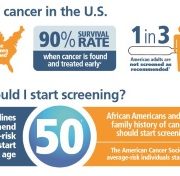What is Hepatitis B?
Hepatitis B is a liver infection that can cause both acute and chronic liver complications. It can lead to serious health issues over time. Here’s what you need to know about Hepatitis B.
Causes and Risk Factors
Hepatitis B is caused by the hepatitis B virus (HBV). This virus is transmitted in several ways, including blood, semen, and other bodily fluids, but not through sneezing or coughing. Some common modes of transmission are sexual contact, needle sharing, and mother to child. People who have unprotected sexual contact with someone infected with Hepatitis B are at a higher risk. They can contract the infection if any saliva, semen, blood, or vaginal secretions from the infected person enter their body. Also, since HBV can spread easily through infected blood on needles and syringes, intravenous drug-users who share equipment are at a heightened risk for contracting Hepatitis B. Mothers can pass the virus to their newborns during delivery as well.
Types
Hepatitis B can be an acute or chronic infection. Acute cases last less than six months, and the immune system clears the virus from the body without long-term effects. Most adults who get the infection have an acute case. Chronic cases last over six months, and occur when the immune system can’t fight off the virus. Younger children are more likely to have a chronic case- 80-90% of infants who are infected in their first year develop chronic infections, and 30-50% of children under the age of 6 develop chronic infections. Fewer than 5% of healthy adults develop chronic cases.
Symptoms and complications
Symptoms of Hepatitis B can range from mild to severe, and usually appear one to four months after infection. They include joint pain, fever, loss of appetite, abdominal pain, dark urine, jaundice, fatigue, nausea, and vomiting. Some people, who are infected may show no symptoms; this is most often the case for younger children.
Chronic Hepatitis B can lead to serious complications, including Cirrhosis, liver failure, liver disease, liver cancer, Hepatitis D, and kidney problems.
Diagnosis
The symptoms of the infection overlap with numerous other viral infections. As such, blood testing is used to diagnose. People who may have been exposed to Hepatitis B, or who have been in high-risk occupations or places, are encouraged to get tested. Blood tests can indicate a number of things including whether you currently have HBV, whether you have ever had HBV, if you are infectious, and whether the infection is acute or chronic (through follow-up testing).
Since Hepatitis B can cause no symptoms in some cases, certain groups of healthy people are often recommended for testing. These groups include pregnant women, HIV-infected people, hemodialysis patients, and people who require immunosuppressive or cytotoxic therapy.
Treatment and Prevention
In cases of acute infection, treatment for Hepatitis B involves symptom management. In some cases, a timely post-exposure prophylaxis can prevent the infection. This usually involves administering the Hepatitis B vaccine, and may include adding immune globulin to bolster protection.
The vaccine is an effective prevention measure. The vaccine schedule is usually for three injections: an initial injection, one a month later, and one six months from the initial injection. All infants should receive the vaccine, in addition to any unvaccinated children under 19, people at risk of exposure (including some health care professionals, people with Hepatitis B positive partners, and some people with diabetes). Prior to travel, seek guidance from a doctor regarding vaccination.
Mitigating risk factors is also crucial for preventing infection. People who intravenously inject drugs should seek help to stop use, or use clean needles and avoid needle sharing. Additionally, you should always seek to know the HBV status of your sexual partner(s). People who have sex with partners that may have the infection should use a new latex or polyurethane condom every time they have sex. Additionally, if you are going to get a tattoo or piercing, make sure you utilize a reputable and sterile shop.
Our experienced team at GHP has years of experience helping people prevent, manage and treat Hepatitis B. We can help establish the best plan of care for your situation. Contact any of our office locations to learn about the options we offer and schedule an appointment today.













